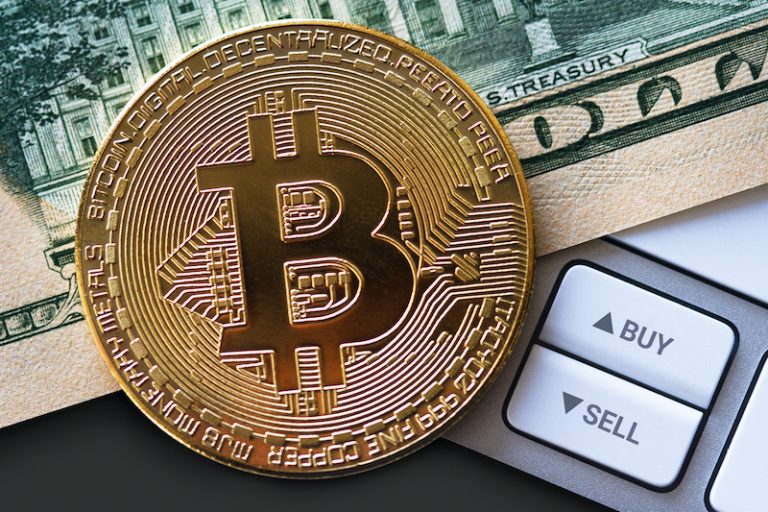how to buy bitcoin at binance sets the stage for this enthralling narrative, offering readers a glimpse into a story that is rich in detail. Bitcoin, the pioneering cryptocurrency, has revolutionized the way we think about money and investments, while Binance stands as a titan in the crypto exchange world, known for its user-friendly features and robust trading options.
In this guide, we’ll walk you through the entire process of buying Bitcoin on Binance, from setting up your account and funding it, to placing your first order and ensuring your Bitcoin is stored securely. Whether you’re a beginner or just looking to refresh your knowledge, this overview will equip you with the essentials to navigate the exciting realm of cryptocurrency with confidence.
Understanding Bitcoin and Binance
Bitcoin, often referred to as the pioneer of cryptocurrency, is a decentralized digital currency that has transformed the financial landscape since its inception in 2009. As an innovative form of currency, it allows for peer-to-peer transactions without the need for intermediaries, such as banks or payment processors. Bitcoin’s significance in the cryptocurrency market lies in its ability to provide an alternative to traditional currency, offering increased security and privacy, as well as the potential for substantial investment returns.Binance stands out as one of the largest and most popular cryptocurrency exchanges in the world, offering a comprehensive suite of features and services tailored to both novice and experienced traders.
Established in 2017, Binance provides an intuitive trading platform that supports a vast selection of cryptocurrencies, including Bitcoin. With its user-friendly interface, advanced trading tools, and robust security measures, Binance has gained a reputation for reliability and efficiency.
Overview of Binance Features and Services
When exploring Binance, it’s essential to understand the key features and services that make it a preferred choice for buying Bitcoin. Below are notable aspects of Binance that enhance the trading experience:
- Wide Range of Cryptocurrencies: Binance supports hundreds of cryptocurrencies, allowing users to diversify their portfolios and trade various assets beyond just Bitcoin.
- Advanced Trading Tools: The platform offers a range of trading options, including spot trading, futures, and margin trading, catering to different trading strategies and risk appetites.
- High Liquidity: Being one of the largest exchanges, Binance boasts high trading volume, which facilitates quicker transactions and tighter spreads.
- Security Features: Binance employs industry-leading security measures, including two-factor authentication, withdrawal whitelist, and cold storage of funds, ensuring the safety of user assets.
- User-Friendly Interface: The platform is designed to be accessible for beginners while also offering advanced features for professional traders, striking a balance between simplicity and functionality.
- Binance Smart Chain: This feature allows users to create and trade decentralized applications (dApps) and smart contracts, expanding the utility of the Binance ecosystem.
The advantages of using Binance for buying Bitcoin compared to other platforms are evident through its exceptional service offerings, competitive fees, and robust customer support. Users benefit from a seamless buying experience, whether they are looking to make a small investment or engage in more complex trading strategies. With these features, Binance not only simplifies the process of purchasing Bitcoin but also enhances the overall trading experience for cryptocurrency enthusiasts.
Setting Up a Binance Account
Creating a Binance account is the first step toward entering the world of cryptocurrency trading. This process is straightforward and ensures that users have a secure and efficient platform for buying and selling Bitcoin and other digital assets.
Step-by-Step Process for Creating a Binance Account
The account creation process on Binance is designed to be user-friendly. Here’s how to set up your account:
1. Visit the Binance Website
Navigate to the official Binance website to begin the registration process.
2. Click on ‘Register’
Look for the ‘Register’ button, usually located at the top right corner of the homepage.
3. Enter Your Email and Password
Input a valid email address and create a strong password. It’s advisable to use a mix of uppercase and lowercase letters, numbers, and special characters.
4. Accept Terms of Use
Read and accept Binance’s terms of service and privacy policy.
5. Complete the CAPTCHA
Verify that you’re not a robot by completing the CAPTCHA challenge.
6. Confirm Registration
You will receive a confirmation email. Click on the link provided in the email to verify your account.Upon completing these steps, your Binance account will be created, allowing you to start trading.
Identity Verification Process
Binance requires users to complete an identity verification process to comply with regulatory standards and enhance security. This process entails submitting personal information and documentation, including:
Personal Identification
A government-issued ID such as a passport, driver’s license, or national ID card.
Proof of Address
A recent utility bill, bank statement, or any official document that displays your name and address.
Facial Verification
Users may need to take a selfie or record a short video to confirm their identity alongside the submitted documents.This verification process typically takes a few minutes to a couple of days. Once approved, users can access all of Binance’s features, including higher withdrawal limits.
Security Measures for Your Binance Account
Ensuring the security of your Binance account is paramount to safeguard your assets. Here are some critical security measures you should implement:
Enable Two-Factor Authentication (2FA)
Use an app like Google Authenticator or SMS-based 2FA to add an extra layer of security.
Create a Strong Password
Choose a unique password that is not used for other accounts. Regularly update it for enhanced security.
Be Wary of Phishing Attempts
Always ensure that you are on the official Binance website and be cautious of unsolicited emails or messages that ask for sensitive information.
Review Account Activity
Regularly check your account activity and transaction history for any unauthorized transactions.
Withdrawal Whitelists
Set up withdrawal whitelists for added security, allowing withdrawals only to pre-approved wallets.Implementing these security measures helps protect your account from unauthorized access and potential fraud. By taking these precautions, you ensure a safer trading experience on Binance.
Funding Your Binance Account
To start trading on Binance, you need to fund your account. This process is straightforward and can be completed using various payment methods depending on your preferences and location. Understanding how to deposit both fiat currency and cryptocurrencies into your Binance account is essential for a smooth trading experience.
Payment Methods for Depositing Funds
Binance offers several options for users to deposit funds into their accounts. Selecting the right method depends on factors such as your location and the type of currency you wish to use. Here are the main payment methods available:
- Bank Transfer: A popular option allowing users to deposit fiat currency directly from their bank accounts. This method may take a few days depending on your bank and country.
- Credit/Debit Card: Users can instantly purchase cryptocurrencies using their credit or debit cards. This method is convenient but may involve higher fees compared to bank transfers.
- P2P Trading: Binance also offers a peer-to-peer trading platform where you can buy cryptocurrencies directly from other users using various payment methods, including cash, bank transfer, or payment apps.
- Third-Party Payment Solutions: Options like Simplex allow users to buy cryptocurrencies using credit cards through Binance.
Depositing Fiat Currency into Binance
Depositing fiat currency into your Binance account is a simple process. Here’s a step-by-step guide to help you through it:
- Log in to your Binance account and navigate to the “Wallet” section.
- Click on “Deposit” and select “Fiat.”
- Choose your preferred fiat currency from the dropdown menu.
- Select your payment method (such as bank transfer or credit card).
- Follow the on-screen instructions to complete your deposit.
Always check for any minimum deposit requirements and fees associated with your chosen payment method.
Transferring Cryptocurrencies to Binance
If you already own cryptocurrencies and want to transfer them to Binance for trading, the process is just as simple. Follow these guidelines:
- Log in to your Binance account and go to the “Wallet” section.
- Click on “Deposit” and select “Crypto.”
- Choose the cryptocurrency you wish to deposit from the list provided.
- Binance will generate a deposit address for that cryptocurrency. Make sure to copy this address carefully.
- Go to your cryptocurrency wallet (where your coins are stored), and initiate a transfer to the Binance deposit address.
- Confirm the transfer and wait for the transaction to be confirmed on the blockchain.
Be cautious and verify that you are sending the correct cryptocurrency to its corresponding address on Binance to avoid loss of funds.
Buying Bitcoin on Binance
Purchasing Bitcoin on Binance is an intuitive process, but understanding the types of orders available and how to navigate the platform efficiently can enhance your trading experience. This guide will walk you through the various methods of placing a buy order for Bitcoin, along with a focus on using the Binance mobile app for seamless transactions.
Placing a Buy Order for Bitcoin
To buy Bitcoin on Binance, you need to follow a systematic approach that ensures you are aware of the type of order you are placing. Here’s how to do it:
- Login to your Binance account.
- Navigate to the Markets section. You can select “Spot” trading to view the available cryptocurrencies.
- Search for Bitcoin (BTC). Use the search bar or scroll through the list to find BTC.
- Select the trading pair. Common pairs include BTC/USDT or BTC/BUSD.
- Choose the order type. This is where you can select either a market or limit order.
Types of Orders on Binance
Understanding the different types of orders is crucial for effective trading. Here’s a breakdown of the most common order types you can use when buying Bitcoin:
Market Order
This order allows you to buy Bitcoin at the current market price. It is executed immediately, which is ideal for quick purchases. However, the price may fluctuate, and you could end up paying more or less than anticipated.
Limit Order
With a limit order, you set a specific price at which you want to buy Bitcoin. This order remains open until the market price reaches your specified price. This method is preferable for those who wish to control the price at which they buy, but it may take longer to execute.
Stop-Limit Order
This combines elements of both market and limit orders. You set a stop price and a limit price. When the stop price is reached, a limit order is triggered, allowing you to buy Bitcoin at your desired price.Each type of order has its implications, particularly concerning price volatility and execution speed. Using a market order is straightforward, while limit orders require more patience and market analysis.
Using the Binance Mobile App for Purchasing Bitcoin
The Binance mobile app offers a convenient way to buy Bitcoin on the go. The app’s interface is user-friendly, making it easy for both beginners and experienced traders to navigate. Here’s a step-by-step on how to make a purchase via the app:
- Open the Binance app and log into your account.
- Access the Markets tab from the bottom menu.
- Find Bitcoin by searching for it through the search function or browsing through the available cryptocurrencies.
- Select your trading pair based on your funding currency.
- Select the type of order you wish to use (market or limit).
- Enter the amount of Bitcoin you want to purchase, and if applicable, the price for limit orders.
- Review your order to ensure all details are correct.
- Confirm the order to complete the purchase.
The mobile app also allows easy access to your trading history and portfolio, enabling you to monitor your investments in real-time. Notifications can be set up to alert you when certain price levels are reached, keeping you informed on market movements.Buying Bitcoin on Binance, whether through the website or the app, is straightforward if you understand the process and the types of orders available to you.
This knowledge will empower you to make informed purchase decisions tailored to your trading strategies.
Storing Your Bitcoin Safely
After purchasing Bitcoin, the next crucial step is ensuring its safety. With the increasing value and popularity of Bitcoin, safeguarding your investment becomes paramount. Proper storage methods can significantly reduce the risk of loss due to theft or mishaps.When it comes to storing Bitcoin, there are two primary options: hot wallets and cold wallets. Each has distinct advantages and disadvantages, and understanding these can help you make an informed decision about the best way to keep your Bitcoin secure.
Hot Wallets and Cold Wallets
Hot wallets are internet-connected storage solutions that allow for quick access and transactions. Cold wallets, on the other hand, are offline storage options that provide enhanced security. Below is a comparison of both types: Hot Wallets:
Pros
Easy to use and set up, making them ideal for beginners.
Quick access for transactions, which is convenient for active traders.
Typically integrated with exchanges, simplifying the buying and selling process. –
Cons
Vulnerable to hacking and online theft.
Depends on third-party services, which may have security flaws.
Generally not suitable for long-term storage of large amounts.
Cold Wallets:
Pros
Significantly more secure since they are not connected to the internet.
Ideal for long-term storage of significant investments.
Ownership of private keys, reducing reliance on third-party services. –
Cons
Less convenient for frequent transactions.
Requires a physical device (like a hardware wallet) or secure paper backup.
Initial setup may be more complex for beginners.
Maintaining the security of your Bitcoin holdings involves implementing best practices regardless of the wallet choice. Here are some essential strategies:
Use Strong Passwords
Ensure that all accounts related to your Bitcoin holdings are protected with strong, unique passwords that are difficult to guess.
Enable Two-Factor Authentication (2FA)
Adding an extra layer of security helps protect your accounts from unauthorized access.
Backup Your Wallet
Regularly back up your wallet data to prevent loss due to device failure or accidental deletion.
Keep Software Up to Date
Regularly update your wallet software and any associated applications to protect against vulnerabilities.
Be Cautious with Public Wi-Fi
Avoid accessing your wallet or making transactions over public Wi-Fi networks as they can be insecure.By understanding the differences between hot and cold wallets and following best security practices, you can keep your Bitcoin holdings safe and secure.
Trading and Selling Bitcoin on Binance
Selling Bitcoin on Binance is a straightforward process that allows users to capitalize on price movements in the market. This section covers the essential steps for selling your Bitcoin, different order types available, and how to trade Bitcoin for other cryptocurrencies on the platform. By understanding these elements, you can enhance your trading strategy and optimize your gains effectively.
Process of Selling Bitcoin on Binance
To sell Bitcoin on Binance, follow these steps:
1. Login to Your Account
Access your Binance account and navigate to the “Spot” trading section.
2. Select the BTC Trading Pair
Choose the trading pair that matches your Bitcoin (e.g., BTC/USDT, BTC/ETH).
3. Choose the Order Type
There are several order types available:
Market Order
This type sells your Bitcoin at the current market price.
Limit Order
This allows you to set a specific price at which you want to sell your Bitcoin. Your order will only execute once the market reaches your specified price.
Stop-Limit Order
This combines a stop order with a limit order, allowing you to set a stop price and a limit price.Understanding these order types ensures that you can execute your trades based on your market outlook and risk tolerance.
Trading Bitcoin for Other Cryptocurrencies
Binance offers users the flexibility to trade Bitcoin for a variety of other cryptocurrencies. This feature can help diversify your portfolio. The process involves selecting the appropriate trading pair for the cryptocurrency you wish to buy, such as BTC/ETH or BTC/LTC. When trading Bitcoin for other cryptocurrencies, it’s crucial to analyze the market conditions and trends for the altcoins in question.
The trading interface allows you to see real-time price charts, order books, and recent trades, which can aid in making informed decisions.
Strategies for Maximizing Gains When Trading Bitcoin
To maximize your gains while trading Bitcoin, consider the following strategies:
Technical Analysis
Utilize price charts and indicators to identify potential entry and exit points. Analyzing patterns like support and resistance levels can enhance your trading decisions.
Diversification
Don’t put all your funds into Bitcoin; explore trading pairs with promising altcoins. This can mitigate risks and potentially increase returns.
Stay Informed
Keeping up with news and events in the cryptocurrency space can give you insights into market movements. For example, regulatory changes or technological advancements can impact prices significantly.
Risk Management
Set stop-loss orders to protect your investment. This ensures that you minimize losses if the market moves against your position.By implementing these strategies, you can approach trading on Binance with a more systematic and informed mindset, leading to better outcomes in the long run.
Troubleshooting Common Issues
When navigating the world of cryptocurrency trading, especially on a platform like Binance, users may encounter various challenges. Understanding these common issues and how to troubleshoot them can significantly enhance the trading experience. Below, you’ll find a comprehensive guide to address frequent problems, along with solutions to help you resolve them efficiently.
Common Problems and Solutions
Several obstacles can arise when buying Bitcoin on Binance. Below are some of the most frequently reported issues and their respective solutions:
- Account Verification Delays: Sometimes, users experience delays in account verification, preventing them from trading. Ensure all documents submitted are clear and adhere to Binance’s guidelines to expedite the process.
- Failed Transactions: Transactions may fail due to insufficient funds or network congestion. Double-check your balance and try again, possibly during off-peak hours for better network performance.
- Withdrawal Issues: If you’re unable to withdraw Bitcoin, it may be due to pending verification or withdrawal limits. Check your account settings and ensure your identity is verified to resolve this.
- Two-Factor Authentication Problems: Users often face issues with 2FA codes. If your authenticator app isn’t generating codes, ensure your device’s time settings are correct and synced to the network.
Account Recovery Process
In the event of losing access to your Binance account, it’s important to know the recovery steps to regain control. Here’s how to go about it:
- Visit the Binance Login Page: Click on the “Forgot Password?” link and follow the prompts to reset your password using your registered email address.
- Enable Account Recovery: Depending on your account security settings, you may need to provide additional verification methods, such as 2FA or security questions.
- Contact Support: If you encounter difficulties during the recovery process, reach out to Binance Support for assistance. Provide relevant details to expedite your request.
Effective Communication with Binance Support
When facing issues on Binance, knowing how to communicate effectively with support can lead to quicker resolutions. Here are some tips to enhance your interactions:
- Be Clear and Concise: Describe your issue in detail but keep your language straightforward. Include relevant details like transaction IDs and error messages.
- Use the Support Ticket System: Always submit a support request through the official Binance support ticket system to ensure your issue is logged and tracked.
- Follow Up: If you haven’t received a response within a reasonable time frame, follow up politely to check the status of your request.
“Patience and clarity in communication often yield the best results when dealing with support issues.”
Staying Informed About Bitcoin and Market Trends
Staying updated on Bitcoin and the broader cryptocurrency market is crucial for making informed investment decisions. The landscape of cryptocurrencies is volatile and ever-changing, making continuous education and awareness key to navigating this space effectively. Monitoring market trends and news can help investors anticipate price movements and understand the factors driving market changes. By staying informed, you can make timely decisions that align with your investment strategy and risk tolerance.
Resources for Cryptocurrency News and Market Analysis
A variety of platforms and resources provide insights into cryptocurrency trends and Bitcoin-specific news. Utilizing these resources can enhance your understanding and keep you ahead in the market.
- Crypto News Websites: Websites like CoinDesk, CoinTelegraph, and The Block offer up-to-date news and analysis on Bitcoin and other cryptocurrencies. Regularly visiting these sites can keep you informed about developments that may impact your investments.
- Social Media: Twitter and Reddit are vibrant platforms where crypto enthusiasts and experts share insights, news, and predictions. Following influential figures and relevant hashtags can provide a pulse on market sentiment.
- Market Analytics Tools: Platforms like TradingView and CoinMarketCap provide real-time data and analysis tools to track Bitcoin prices and market performance. Utilizing these tools can help you visualize trends and make data-driven decisions.
Using Binance’s Tools for Tracking Bitcoin Performance
Binance offers a suite of tools that can help users monitor Bitcoin’s performance effectively. Familiarizing yourself with these features can enhance your trading experience.
- Binance Dashboard: The Binance dashboard provides an overview of your portfolio, including Bitcoin holdings. It allows you to track your investments’ performance in real-time and view market trends directly from the platform.
- Price Alerts: Setting up price alerts on Binance can notify you when Bitcoin reaches specific price points. This feature ensures you don’t miss out on trading opportunities, whether you’re looking to buy or sell.
- Market Analysis Tools: Binance offers charts and technical analysis tools that help users analyze market trends. Utilizing these tools can aid in making informed trading decisions based on historical data and current market conditions.
Staying informed about Bitcoin and market trends is an ongoing process that requires dedication. By leveraging credible resources and Binance’s tools, you can enhance your trading strategy and navigate the cryptocurrency landscape more effectively.
Final Summary
In conclusion, buying Bitcoin at Binance can be a straightforward and rewarding experience when you have the right information at your fingertips. From understanding the features of Binance to securely storing your cryptocurrency, the journey is filled with opportunities for savvy investors. By staying informed and utilizing the tools available, you’re well on your way to navigating the dynamic world of Bitcoin with ease and confidence.
FAQ Explained
What is the minimum amount to buy Bitcoin on Binance?
The minimum amount to buy Bitcoin on Binance typically starts as low as $10, but it can vary depending on market conditions and transaction fees.
Can I use a credit card to buy Bitcoin on Binance?
Yes, Binance allows users to purchase Bitcoin with credit and debit cards, making it convenient for new investors.
Is there a withdrawal fee for Bitcoin on Binance?
Yes, Binance charges a withdrawal fee when you transfer Bitcoin from your Binance account to another wallet, and this fee may vary based on network conditions.
Can I buy Bitcoin anonymously on Binance?
Due to regulatory requirements, Binance requires identity verification for most transactions, which limits the ability to buy Bitcoin anonymously.
How long does it take to buy Bitcoin on Binance?
The process of buying Bitcoin on Binance can be almost instantaneous once your account is funded, but it may take longer if you are using bank transfers or during peak times.



![Top 10 Companies in Qatar 2017 List … [UPDATED] - Welcome Qatar](https://naturalironsources.com/wp-content/uploads/2025/10/2-Qatar-National-Bank-1-780x405-1-768x399.jpg)
![Top 10 Companies in Qatar 2017 List … [UPDATED] - Welcome Qatar Top 10 Companies in Qatar 2017 List … [UPDATED] - Welcome Qatar](https://naturalironsources.com/wp-content/uploads/2025/10/2-Qatar-National-Bank-1-780x405-1.jpg)







